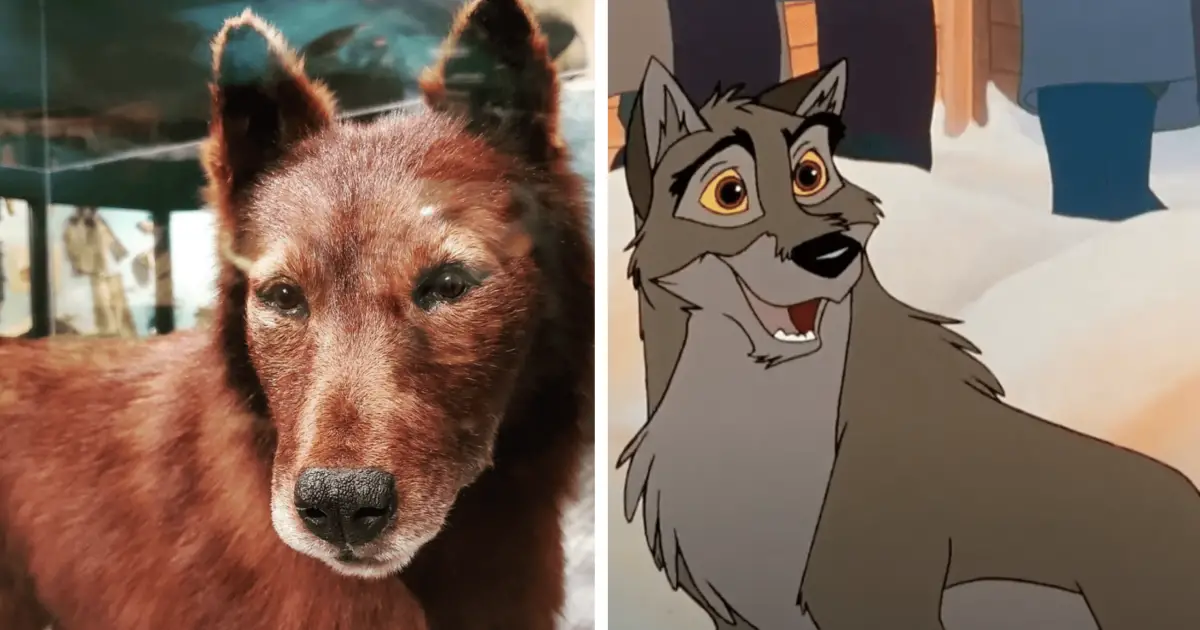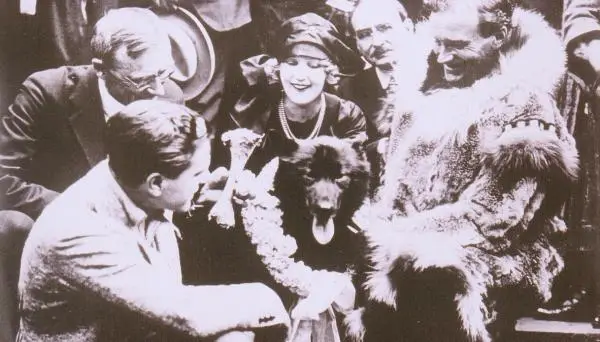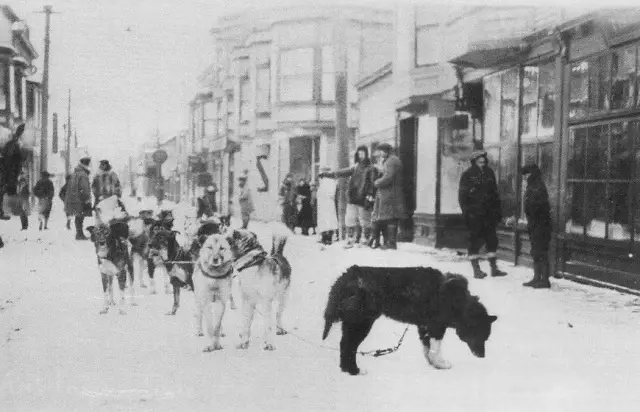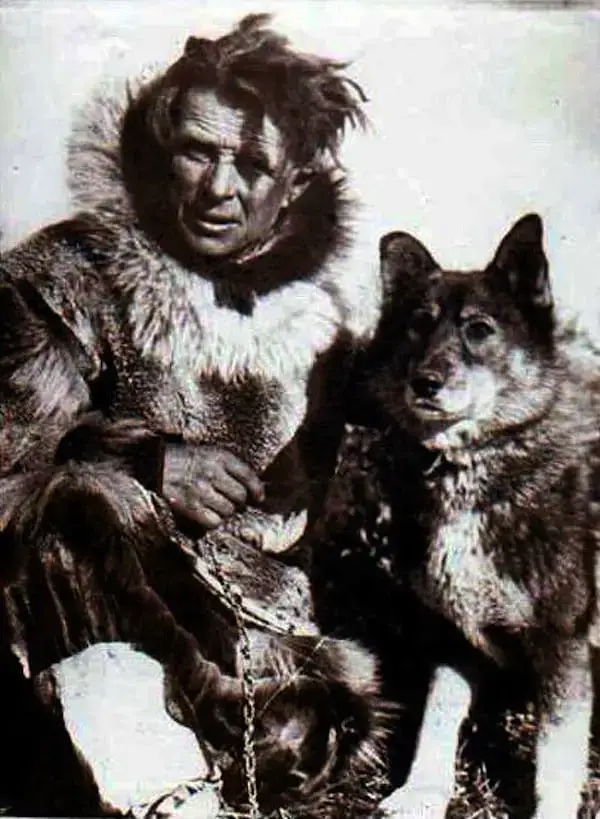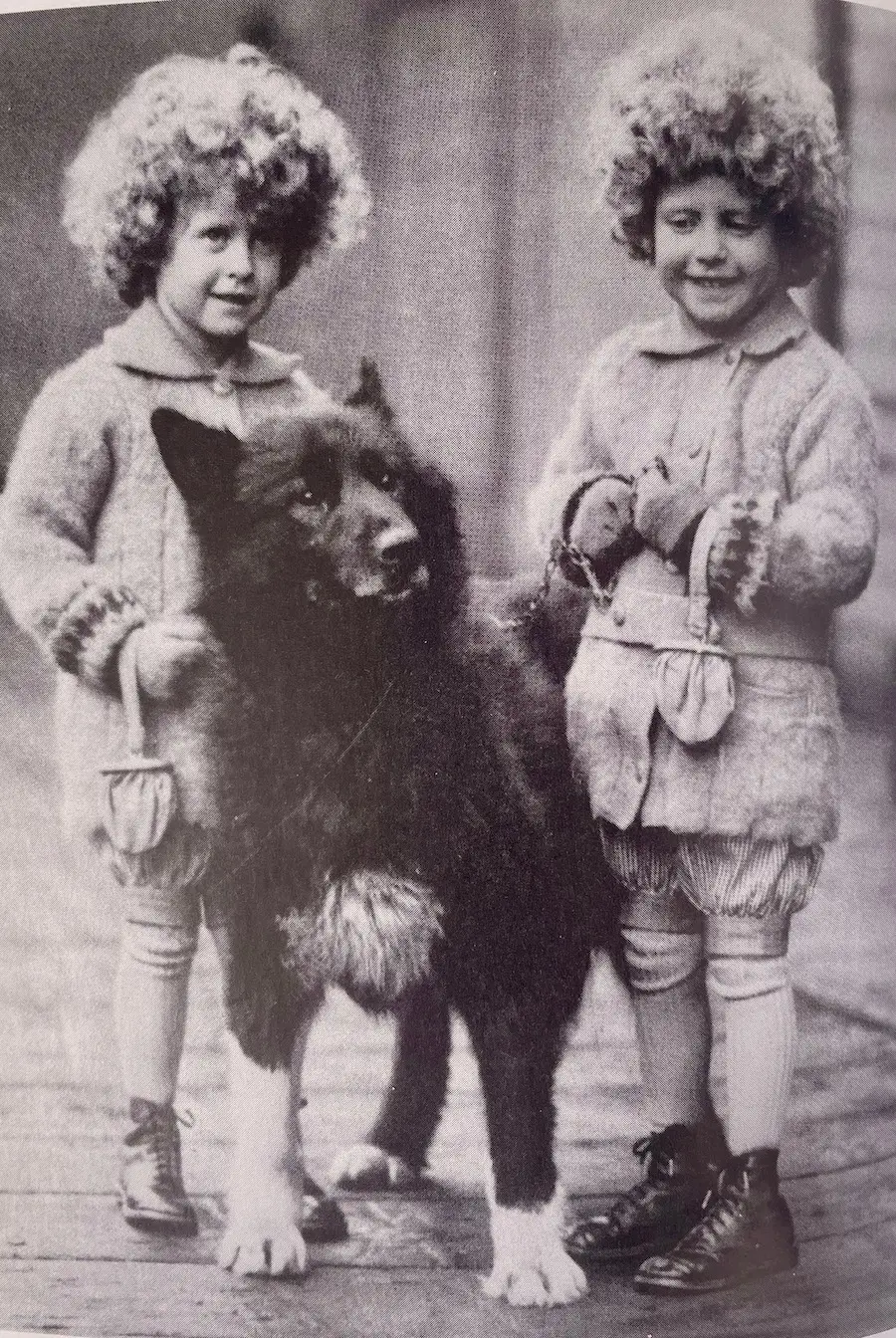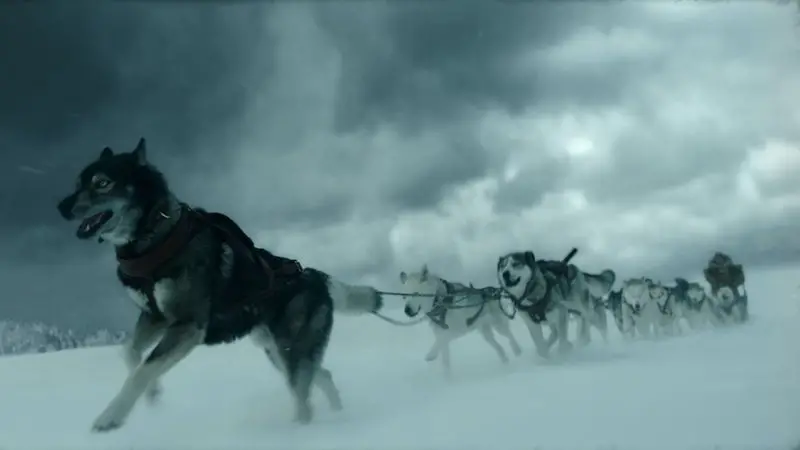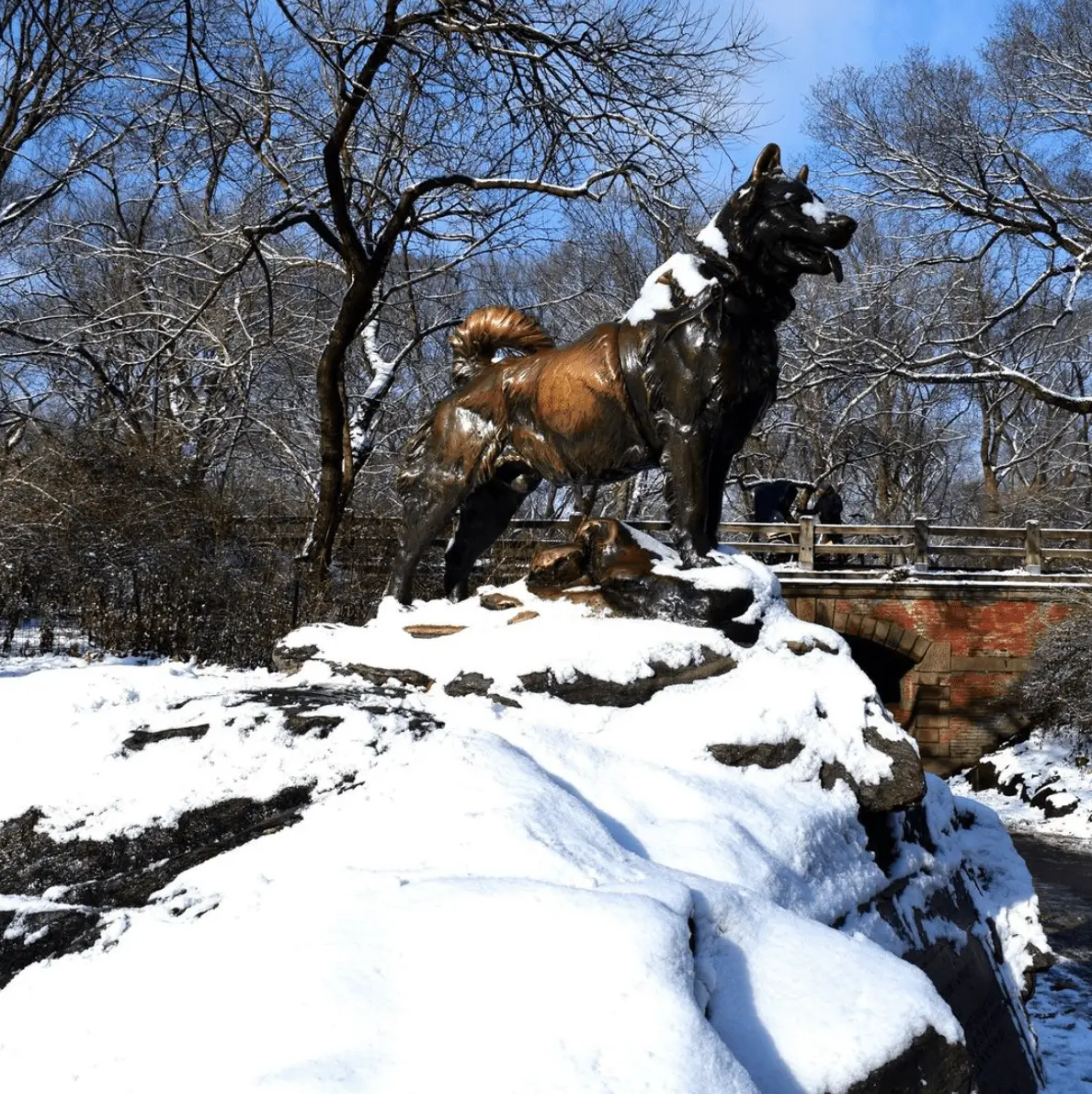Uncovering the Balto True Story History, Legend, and Facts
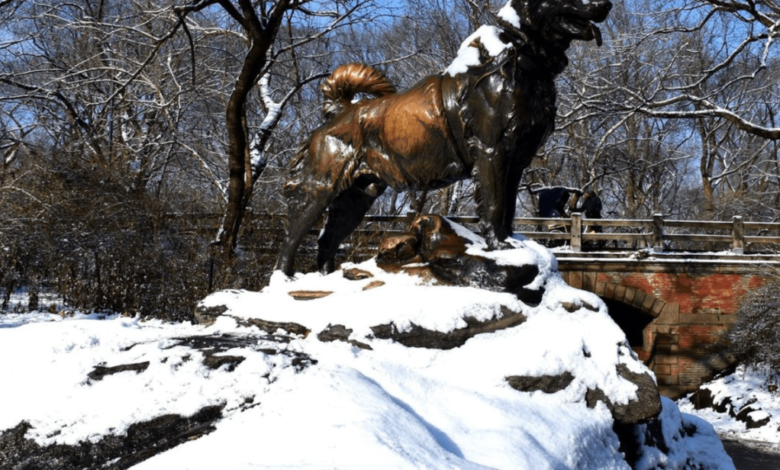
The incredible true story of Balto is one of heroism, courage, and determination. In January 1925, a diphtheria epidemic broke out in Nome, Alaska, a small town isolated by hundreds of miles of frozen wilderness. The nearest supply of antitoxin, the only known cure for diphtheria, was in Anchorage, Alaska, over 500 miles away.
The only way to get the antitoxin to Nome was by sled dog team. A relay of 20 dog teams was organized, and Balto, a young Siberian Husky, was the lead dog on the final leg of the journey. Balto and his musher, Gunnar Kaasen, faced blizzard conditions, subzero temperatures, and treacherous terrain. But Balto led his team through it all, and they arrived in Nome on February 2, 1925, just in time to save the lives of the town’s children.
The Incredible Balto True Story
Balto’s story became a national sensation, and he was hailed as a hero. He was given a parade in his honor in Cleveland, Ohio, and a statue of him was erected in Central Park in New York City. Balto lived out the rest of his days at the Cleveland Zoo, where he was beloved by visitors and staff alike.
While Balto is the most famous dog involved in the Great Race of Mercy, it is important to note that he was not the only one who played a vital role. Togo, another Siberian Husky, led his team for over 260 miles, facing some of the most challenging conditions of the entire journey. Togo’s team was the first to reach the relay station where Balto and Kaasen were waiting.
All of the dogs involved in the Great Race of Mercy were heroes. They faced incredible challenges and risked their lives to save the people of Nome. Their story is a testament to the courage and resilience of these amazing animals.
Here is a more detailed account of Balto’s role in the Great Race of Mercy:
Balto was not originally scheduled to run the final leg of the journey. He was a young and inexperienced dog, and his musher, Gunnar Kaasen, was concerned that he would not be able to handle the difficult conditions. However, when the musher who was scheduled to run the final leg fell ill, Kaasen had no choice but to put Balto in charge.
Balto proved to be a natural leader. He kept his team on track even during the worst of the blizzard, and he never gave up. When Kaasen lost his way in the whiteout, Balto used his keen sense of smell to find the trail. And when the team became exhausted, Balto urged them on.
After running for over 50 miles through treacherous conditions, Balto and his team finally arrived in Nome on February 2, 1925. They were greeted by cheering crowds and relieved families. Balto had become a hero.
Balto’s story is a reminder that even the smallest and most unlikely of heroes can make a difference. He is an inspiration to us all.
the bravest dog ever the true story of balto
Balto: Hero Dog of the Great Serum Run
After successfully completing the Great Serum Run, Balto and the other sled dogs were hailed as heroes and received widespread recognition. Newspapers all over the world ran headlines praising their bravery, with many calling Balto “the savior of Nome.” He became a national celebrity, appearing in parades and events across the country, and even receiving a medal from President Calvin Coolidge at the White House.
But perhaps the most significant recognition for Balto came in the form of the bronze statue that stands in Central Park, New York City. The statue, sculpted by artist Frederick G. R. Roth, was commissioned to honor the brave canine who had captured the hearts of the American public. It was unveiled in 1925, just months after the Great Serum Run, and has since become one of the most iconic landmarks in Central Park.
Uncovering the Real Balto: Separating Fact from Fiction
While Balto’s heroic role in the Great Serum Run cannot be denied, there are some discrepancies between the real Balto and the legendary figure that he has become. For starters, many people believe that Balto was the lead dog for the entire relay, but in reality, he only led the final leg of the journey. The lead dog for the majority of the race was a black and white Siberian Husky named Togo, who was considered to be the strongest and most experienced dog on the team.
Another popular misconception is that Balto was solely responsible for delivering the antitoxin serum to Nome. In reality, he was part of a larger team of sled dogs, all of whom played a pivotal role in the successful completion of the relay. However, it was Balto’s arrival in the final stretch of the race that captured the public’s attention and immortalized him as a hero.
Furthermore, while Balto received a lot of media attention and praise, many of the other sled dogs on the team did not receive the same level of recognition. In fact, some mushers and dogs were completely left out of the spotlight, despite playing crucial roles in the Great Serum Run. It was not until many years later that their contributions were finally acknowledged.
The True Story of Togo History, Culture, and Struggle for Independence
From Sled Dog to Celeb: The Journey of Balto
Following his newfound fame, Balto was sold to vaudeville promoter George Kimble for $2,000 and taken on a national tour. He traveled across the country, making appearances in various cities and performing tricks on stage to entertain the crowds. It was reported that Balto even had a personal dressing room and received fan mail from all over the world.
However, this life of celebrity and constant travel took a toll on Balto’s health. He suffered from exhaustion and refused to eat, leading to concerns for his wellbeing. Eventually, he was retired from the tour and returned to Cleveland, Ohio where he was purchased by Frederick Roth, the sculptor of the Central Park statue. Roth became Balto’s new owner, and the two formed a strong bond until Balto passed away in 1933 at the age of 14.
The Unforgettable Tale of Balto and the Diphtheria Outbreak
Balto’s journey during the Great Serum Run was undoubtedly remarkable, but it was also part of a larger story that captured the attention of the entire nation. The diphtheria outbreak in Nome, which sparked the race for medicine, was a tragic event that claimed the lives of many children and adults. It is estimated that without the timely delivery of the antitoxin serum, the death toll could have been as high as 10,000 people.
The success of the relay was not only a triumph for the sled dogs and mushers involved but also a testament to the determination and resilience of the human spirit. Despite facing insurmountable challenges and harsh conditions, the team persevered and achieved the seemingly impossible. Their actions have been immortalized in history, with the Great Serum Run being considered one of the greatest dog sled relays of all time.
The Extraordinary Story of Balto and Togo: A Narrative of Bravery and Perseverance
The Courageous Canine: A Detailed Look at Balto’s Legacy
Balto’s legacy has continued to live on long after his passing. His statue in Central Park remains a popular tourist attraction and a symbol of courage and determination. In addition, many books, films, and documentaries have been produced to tell the story of Balto and the Great Serum Run, further cementing his place in history. However, it is not just his heroic actions that have left a lasting impact, but also the lessons that we can learn from his story.
Balto’s unwavering loyalty to his musher and his team, his resilience in the face of adversity, and his unrelenting determination to reach his destination are all qualities that continue to inspire people to this day. He is a reminder that even in the most challenging of circumstances, anything is possible with the right attitude and a strong sense of purpose.
Behind the Scenes of the Balto Film: How Accurate is it?
In 1995, an animated film titled “Balto” was released by Universal Studios, bringing the story of the heroic dog to a whole new generation. While the film stayed true to the main events of the Great Serum Run, there were some fictional elements added for dramatic effect. For example, Balto’s character in the film is depicted as a lone wolf who is shunned by his fellow sled dogs, while in reality, he was a well-respected member of the team.
Another significant difference between the film and the true story is the portrayal of Balto’s relationship with his musher, Gunnar Kaasen. In the movie, they are shown as having a strained relationship, with Kaasen initially doubting Balto’s abilities. However, in real life, Kaasen had a deep bond with Balto and always spoke highly of him. Despite these discrepancies, the film helped to bring Balto’s story to a wider audience and further solidified his place in popular culture.
Discovering the Untold Adventures of Balto and His Team
While Balto’s journey during the Great Serum Run is the most well-known aspect of his life, there were also many other adventures and challenges that he faced throughout his career as a sled dog. Before joining the relay team, Balto was owned by musher Leonhard Seppala, who used him for racing and hunting expeditions. Balto was known as a strong and reliable sled dog, but it wasn’t until the Great Serum Run that his true potential was recognized.
After retiring from the vaudeville tour, Balto spent the rest of his days living a quiet life with Frederick Roth and his family. However, his legacy continued to live on through his offspring, some of whom became champion sled dogs themselves. In addition, the legacy of the Great Serum Run continues to be celebrated every year with the Iditarod Trail Sled Dog Race, which follows the same route as the historic relay.
From Alaska to New York City: Following Balto’s Journey
One of the most fascinating aspects of Balto’s story is the journey that he took from the remote town of Nome, Alaska to the bustling city of New York. After completing the Great Serum Run, Balto was sold to vaudeville promoter George Kimble, who took him on a nationwide tour. This journey would have been a drastic change for Balto, going from the harsh and unforgiving Alaskan wilderness to the bright lights of big cities.
Eventually, Balto found his permanent home in Cleveland, Ohio with Frederick Roth and his family. But his statue in Central Park has become a symbol of his incredible journey and serves as a reminder of his unwavering bravery and determination.
Exploring the Impact of Balto’s Legendary Race for Medicine
The Great Serum Run of 1925 was not only a significant event in the history of dog sledding, but it also had a lasting impact on both the town of Nome and the entire nation. The successful delivery of the antitoxin serum marked a turning point in the fight against diphtheria, saving countless lives and bringing hope to a community that was facing devastation. It also brought attention to the need for better transportation and communication systems in remote areas like Alaska.
In addition, the heroic actions of the sled dogs and mushers during the Great Serum Run helped to change the perception of sled dogs from being mere work animals to true athletes and companions. Today, sled dog racing remains a popular sport, with events such as the Iditarod and the Yukon Quest drawing in crowds from all over the world.
Conclusion
The legend of Balto may have been passed down through generations, but his story continues to captivate people to this day. From his incredible journey during the Great Serum Run to his enduring legacy as a symbol of courage and determination, Balto has left an indelible mark on history. While there may be some discrepancies between the real Balto and the legend that he has become, one thing is for sure – his bravery and loyalty will never be forgotten. As we stand in front of his statue in Central Park, we are reminded of the incredible power of determination and the extraordinary bond between humans and animals. The story of Balto will continue to inspire future generations and serve as a testament to the unbreakable spirit of the human and canine partnership.

